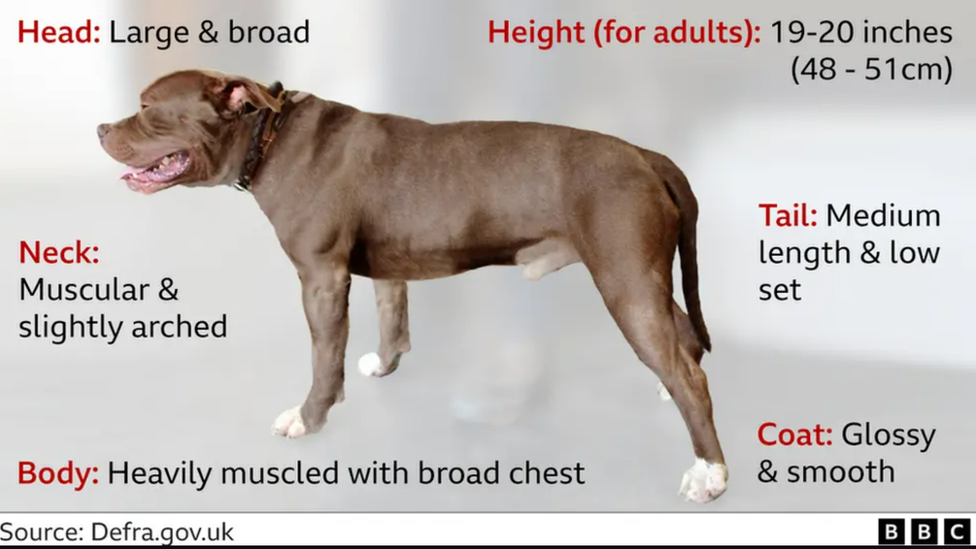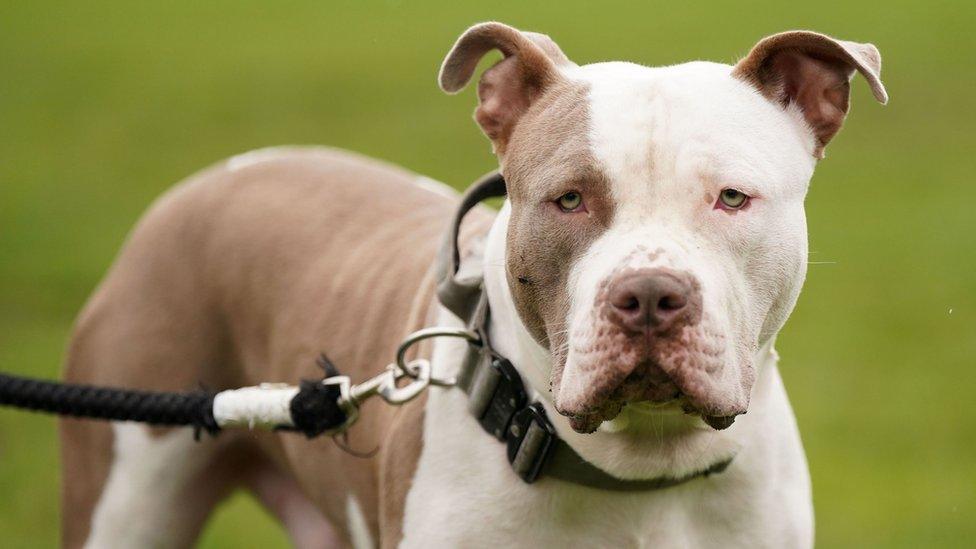What are Scotland's new rules on XL bully dogs?
- Published

XL bullies are now subject to restrictions in Scotland
New rules on the ownership of XL bully-style dogs have been officially introduced in Scotland.
Under the laws, the breeding and sale of the animals are now banned, while those already kept as pets must be muzzled in public places.
The legislation was brought in after the breed was linked to a string of serious and sometimes fatal attacks.
It brings Scotland in line with restrictions passed in England and Wales earlier this year.
What are the restrictions?
From 23 February, owners must keep the dogs muzzled and on a lead in public places, external.
The breeding, selling, abandonment and exchange of the dogs has also been banned from that date.
Current owners must apply for an exemption certificate to keep their dogs beyond 31 July.
When the second part of the legislation comes into force from this date, the dogs have to be microchipped and neutered.
What is an XL bully?

Defra has released guidelines on defining and recognising an XL bully
Part of the debate surrounding the ban on the breed has concerned the actual definition of what an XL bully is.
The breed is not officially recognised by the UK Kennel Club, but the Department for Environment, Food & Rural Affairs (Defra), external had published guidance on helping to identify the animals.
Its standards describe them as being 19-20 inches (up to 51cm) tall, with a "muscular body and blocky head".
The guidance also states they have a "glossy coat" and a "medium length and low set" tail.
They typically live between eight and 13 years and are the largest kind of American bully dog.
What is the punishment?
Owners found to be infringing on the new rules can be fined or sentenced to a period in prison.
The Scottish government said those in breach of the legislation could face a six month sentence and/or a penalty of up to £5,000.
Police may also be able to seize unregistered dogs.
Why have the restrictions been introduced?

The animals have been linked to a number of attacks, some of which have been fatal
England and Wales announced their ban on the dogs last year, introducing restrictions from 31 December 2023 and the requirement for exemption certificates from 1 February 2024.
The Scottish government said it had to fall in line with those measures in order to close a "loophole" which meant some owners south of the border were giving away their dogs to be rehomed in Scotland.
When the announcement of the English and Welsh ban was made last year, the UK government said XL bullies had been involved in a "disproportionate" number of fatal attacks involving dogs.
In February, Esther Martin, 68, was killed by an XL bully while visiting her grandson in Jaywick, near Clacton-on-Sea in Essex.
The animals have been linked to the deaths of Ian Langley, near Sunderland, Ian Price, in Staffordshire and Ann Dunn, in Liverpool in the past year.
They have also been linked to the killings of 17-month-old Bella-Rae Birch and 10-year-old Jack Lis in St Helens, Lancashire, and Caerphilly, Wales, respectively.
In Scotland, several attacks have been confirmed to involve the breed. Most recently, an 18-year-old woman was reported to the procurator fiscal after an XL bully injured three people and another dog in East Kilbride.